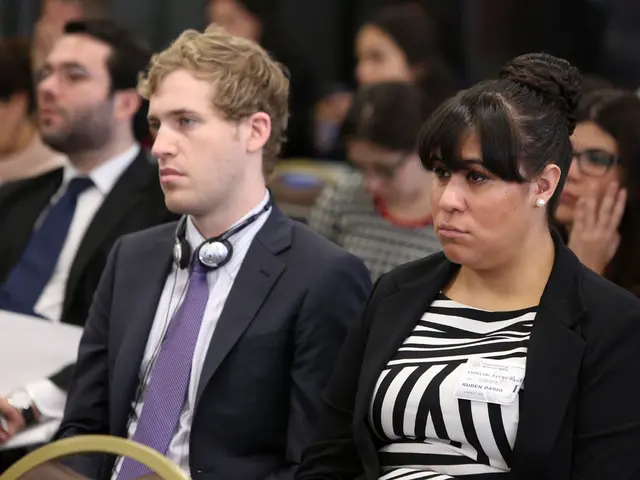Brain Health Preservation: Merely a Few Minutes of Physical Activity Could Be Sufficient for an Aging Brain
Up Your Game for Better Brain Health: Aging Gracefully, Brainially
As we get older, it's natural for some changes to occur in our brains. We may lose volume, and the outer layer becomes thinner, leading to issues like forgetfulness. But fear not! There are several ways to help keep your brain functioning optimally as you age. New research suggests that even a few minutes of moderate-to-vigorous physical activity (MVPA) can make a significant difference.
MVPA has been shown to improve cognitive functions like processing speed, working memory, and executive function. These skills are crucial for everyday tasks such as decision-making and problem-solving. And it's not just about undertaking marathons or heavy workouts; simple activities like jogging, brisk walking, swimming, cycling, playing tennis, or even dancing can do the trick.
In a recent study published in the journal Age and Ageing, researchers found that older adults who engage in MVPA during the day demonstrate better cognitive performance than those who are less active.
"Active aging is increasingly recognized as essential for maintaining cognitive function across the lifespan," Audrey M. Collins, PhD, lead author of the study, stated. "Our findings suggest that engaging in MVPA, regardless of its duration, may have beneficial effects on cognitive function in late adulthood."
Researchers analyzed data from 585 older adults aged between 65 and 80 who took part in the U.S.-based IGNITE study. They examined the relationships between various activities, including sleeping, sedentary time, light physical activity, and MVPA, in relation to cognitive performance.
"In the context of cognitive function, we have often studied sleep, sedentary behavior, and physical activity as if they are independent of one another," Collins noted. "But these lifestyle behaviors are linked through the context of time, where we are fixed to 24-hours per day."
So, it appears that the way we use our time can have a significant impact on our cognitive health in later years. MVPA seems to be the golden ticket, offering numerous benefits over inactivity. Even small increases in MVPA can lead to measurable improvements in cognitive function, no matter what lifestyle behavior the time was reallocated from.
While the study shows promising results, it's important to note that further research is needed to explore these relationships longitudinally and experimentally. It's also crucial to consider the needs of older adults with activity limitations, as pain and other factors can act as barriers to exercise.
Nevertheless, incorporating MVPA into our daily routines can be a simple yet effective way to protect our mental abilities as we age. As Dr. Gary Small, author of many books on brain health and aging, explained, engaging in MVPA provides numerous benefits for cognitive function.
"Exercise is crucial for our brain and heart health as we age," he said. "Even short bursts of MVPA can bolster brain health, and longer sessions are even better. The bottom line is, if time permits, take that extra jog or walk around the block. Your brain will thank you."
- Aging gracefully requires a focus on maintaining cognitive function, as changes in the brain can lead to issues like forgetfulness with advancing age.
- In a bid to improve brain health, experts suggest incorporating moderate-to-vigorous physical activity (MVPA) into daily routines.
- Older adults who engage in MVPA demonstrate better cognitive performance compared to those who are less active, according to a recent study published in Age and Ageing.
- Simple activities like jogging, brisk walking, swimming, cycling, playing tennis, or dancing can contribute to MVPA, which in turn benefits cognitive functions like processing speed, working memory, and executive function.
- These skills are essential for everyday tasks such as decision-making and problem-solving.
- Neuropsychologists and researchers opine that even small increases in MVPA can lead to measurable improvements in cognitive function, no matter what lifestyle behavior the time was reallocated from.
- The study highlights the importance of understanding the interplay between various lifestyle behaviors, such as sleeping, sedentary time, light physical activity, and MVPA, in relation to cognitive performance.
- General health organizations such as Saphapak and Science endorse health-and-wellness practices, including fitness-and-exercise, for promoting longevity and aiding in agingandlongevity. Engaging in MVPA, therefore, offers a promising approach to upping one's game for better brain health.








